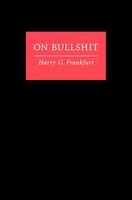Citable No. 10: TTAB Says No to "BULLSHIT" in 2(a) "Scandalous" Affirmance
Finding that Applicant Red Bull failed to overcome the PTO's prima facie showing that the term "bullshit" is "offensive to the conscience of a substantial composite of the general public" and therefore scandalous, the Board affirmed a Section 2(a) refusal to register BULLSHIT as a trademark for alcoholic and non-alcoholic beverages, and as a service mark for hotel, restaurant, bar, and various other services. In re Red Bull GmbH, 78 USPQ2d 1375 (TTAB 2006).

Evidentiary rulings: The PTO relied on dictionary definitions indicating the word "bullshit" to be vulgar, and on the TTAB's decision in In re Tinseltown, 212 USPQ 863 (TTAB 1981), in which the Board found the mark BULLSHIT to be scandalous for handbags and personal accessories. Applicant objected to the dictionary definitions as untimely because they were first offered with the PTO's brief, but the Board pointed to its "long history of taking judicial notice of definitions excerpted from print dictionaries and submitted after appeal."
Several of the PTO's definitions, however, were obtained via the Internet, but the Board overruled Red Bull's objection because the source of the definitions "are reliable, widely-available print publications." The Board also found a definition from the Encarta Dictionary to be acceptable because that dictionary, although not a printed publication, "is a widely-known reference that is readily available in specifically denoted editions via the Internet and CD-Rom." As such, it is the "electronic equivalent of a print publication and applicant may readily verify the excerpt."
Finally the Board refused to take judicial notice as to one PTO definition excerpted from www.wordsmyth.net because the source was not identified on the excerpt submitted by the PTO, and thus its reliability could not be verified.
Applicant Red Bull submitted a definition of "bullshit" from WordNet 1.6, which is available only online. ["a ludicrously false statement"]. The Board curiously found this evidence acceptable because it was submitted "prior to appeal." In addition, "to supplement and clarify" the evidence submitted by Red Bull, the Board also took judicial notice of the definitions of "bullshit" from the current edition (2.0) of WordNet.
Section 2(a): In addition to its dictionary definition, Red Bull submitted an essay entitled "On Bullshit" by Princeton Philosophy Professor Harry Frankfurt, as well as evidence regarding the Showtime cable network television show, "Penn & Teller: Bullshit!" It argued that the Tinseltown decision is out-of-date, that "'bullshit' is generally not viewed as a 'curse' of scandalous proportion," and that the word is "not generally used as a term of scatalogical import and significance."
Finally, Red Bull contended that its mark "is an obvious play on the expression BULLS HIT, where a 'Hit' is a drink or, in some parlance, an inhale or ingestion of some substance - in this case one or more 'Red Bulls.'" The TTAB found that argument to be total b.s.
The Board noted that there was no dispute about the definition of the term "bullshit" as "ludicrously false statements, lies, exaggerations, boasts, nonsense, foolish deceitful language." Moreover, it found that the submitted dictionary definitions "support the conclusion that the term 'bullshit' is as vulgar today as it was at the time of the Tinseltown decision."

As to the Princeton essay, the Board observed that it was written, at least in part, "tongue-in-cheek." Furthermore, "the article itself acknowledges that the term is considered a profanity." As to the Penn & Teller evidence, the Showtime website refers to the program as "taboo," and most of the articles about the show essentially characterize the title of the show as a profanity. The Board noted that Red Bull provided no evidence of "the extent of exposure of the American public to either the Penn and Teller program or the Professor Franklin essay."
Finally the Board distinguished the BIG PECKER BRAND case, In re Hershey, 6 USPQ2d 1470 (TTAB 1988), relied on by Red Bull, on the ground that "the primary meanings of 'pecker' to the general public are innocuous, rather than vulgar."
The Board concluded that Red Bull failed to overcome the PTO's prima facie case.
TTABlog comment: I don't understand why an Internet-only dictionary definition is acceptable if submitted prior to appeal, but not acceptable if submitted with the brief on appeal. Isn't it just as unreliable either way? Shouldn't the determinative factor be the reliability of the reference work? If the online dictionary also appears in print form, that lends some permanence (and therefore reliability) to its definitions. But an online-only dictionary (think Wikipedia) can be changed at a moment's notice.
Text Copyright John L. Welch 2006.




0 Comments:
Post a Comment
<< Home